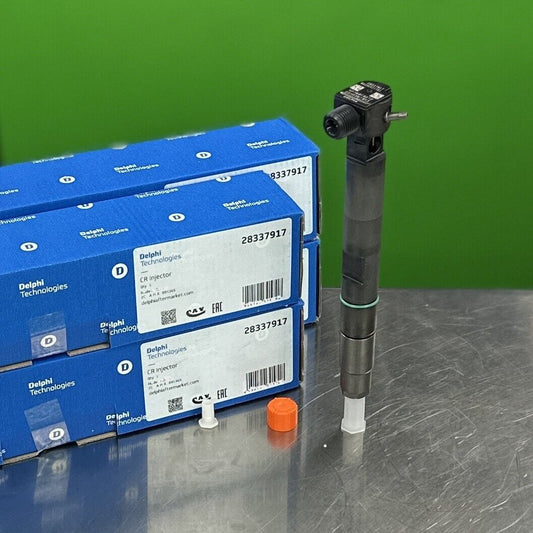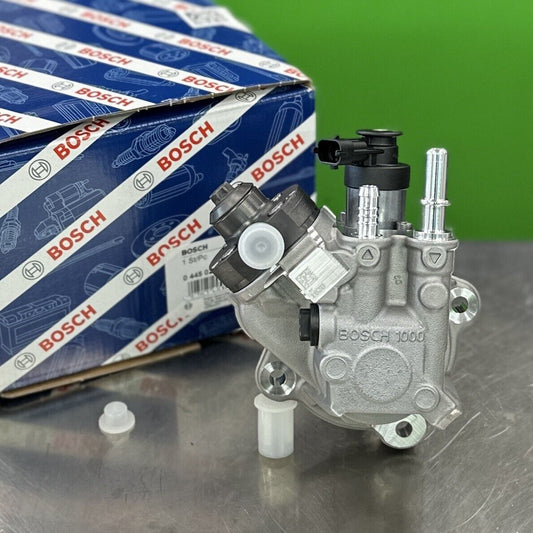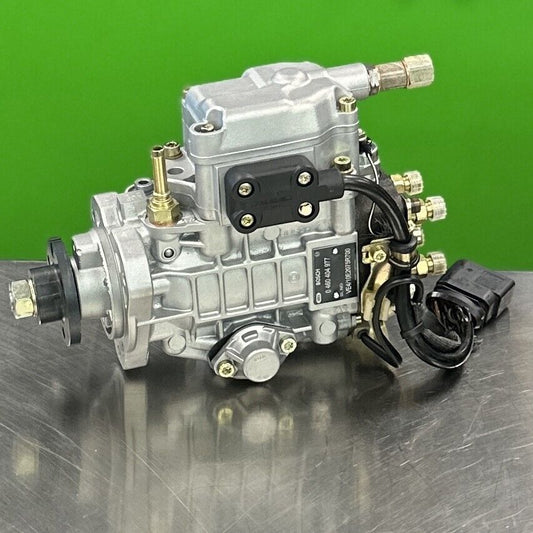Understanding the Role of Fuel Injectors in Your Engine
Fuel injectors play a crucial role in the performance of your vehicle's engine. These small but mighty components are responsible for delivering the precise amount of fuel into the combustion chamber at the right time. Just like a skilled chef carefully measuring ingredients for a recipe, fuel injectors ensure that your engine receives the perfect mixture of air and fuel for combustion.
What Are Fuel Injectors?
Fuel injectors are crucial components in your vehicle's engine that play a vital role in the combustion process. These devices are responsible for delivering the precise amount of fuel into the engine cylinders at the right time, ensuring efficient and optimal performance. Think of fuel injectors as the precision engineers of your engine, carefully measuring and dispensing the fuel needed to power your vehicle.
Unlike older carburetor systems, fuel injectors are electronically controlled and can deliver fuel with greater accuracy, resulting in improved fuel efficiency and reduced emissions. They work in conjunction with the engine control unit (ECU) to adjust the fuel delivery based on various factors such as engine speed, load, and temperature. This dynamic control allows for better fuel management and overall engine performance.
Modern fuel injectors operate by spraying fuel in a fine mist directly into the combustion chamber or intake manifold. This atomized fuel mixes with the incoming air to create a combustible mixture that is ignited by the spark plug. The precise timing and amount of fuel delivered by the injectors are crucial for the engine to run smoothly and efficiently.
Think of fuel injectors as the gatekeepers of your engine, controlling the flow of fuel into the combustion chambers with precision timing. Their role is essential in ensuring that the engine operates at its best, delivering power when needed and maximizing fuel economy. Without properly functioning fuel injectors, your vehicle's performance can suffer, leading to issues such as poor acceleration, rough idling, and decreased fuel efficiency.
Types of Fuel Injectors
When it comes to fuel injectors, there are several types available, each with its own unique characteristics and advantages. Understanding the different types of fuel injectors can provide insight into how they work and their impact on engine performance. Let's explore some of the common types of fuel injectors used in automotive engines:
- Port Fuel Injectors: These injectors are located in the intake manifold near the intake valve. They spray fuel into the intake port, allowing for precise fuel delivery to each cylinder.
- Throttle Body Injectors: Found in the throttle body assembly, these injectors spray fuel directly into the throttle body. While simpler in design, they may not offer the same level of precision as port fuel injectors.
- Direct Fuel Injectors: Also known as gasoline direct injection (GDI), these injectors spray fuel directly into the combustion chamber. This technology can enhance fuel efficiency and engine performance.
- Multi-Point Fuel Injectors: These injectors are positioned near the intake valve of each cylinder. They deliver fuel to multiple points in the intake port, ensuring even distribution among all cylinders.
Each type of fuel injector plays a crucial role in the combustion process, influencing factors such as fuel atomization, air-fuel mixture quality, and overall engine efficiency. The choice of fuel injector type can impact engine performance, emissions, and fuel economy. Therefore, it is essential to understand the characteristics of each type and their suitability for different engine configurations.
Signs of Fuel Injector Issues
When it comes to your vehicle's fuel injectors, being able to recognize the signs of potential issues is crucial for maintaining optimal engine performance. Ignoring these signs can lead to costly repairs and decreased fuel efficiency. So, what are the common indicators that your fuel injectors may be experiencing problems?
One of the most noticeable signs of fuel injector issues is a rough idle or engine misfire. If you notice that your engine is running unevenly or shaking while idling, it could be a sign that one or more fuel injectors are clogged or malfunctioning. This can result in poor fuel combustion and reduced engine efficiency.
Decreased fuel efficiency is another red flag that your fuel injectors may be failing. If you find yourself filling up the gas tank more frequently than usual, despite driving the same distance, it could indicate that the fuel injectors are not delivering the proper amount of fuel to the engine.
Engine stalling is a serious symptom of fuel injector issues that should not be ignored. If your vehicle suddenly stalls while driving or has difficulty starting, it could be due to a faulty fuel injector causing fuel delivery problems. This can be dangerous, especially in traffic or at high speeds.
Additionally, engine performance issues such as a lack of power or acceleration can also point to fuel injector problems. When the fuel injectors are not functioning correctly, the engine may struggle to generate power, resulting in sluggish performance and a lack of responsiveness when accelerating.
Another sign to watch out for is excessive exhaust smoke, particularly if it is dark or has a strong odor. This could indicate that the fuel injectors are leaking or not atomizing the fuel properly, leading to incomplete combustion and the production of excess smoke from the exhaust.
In conclusion, being aware of these signs of fuel injector issues can help you address any potential problems early on, preventing further damage to your engine and ensuring smooth operation of your vehicle. Regular maintenance and prompt attention to these symptoms can save you time and money in the long run.
Importance of Fuel Injector Maintenance
The cannot be overstated when it comes to ensuring the smooth operation and longevity of your vehicle's engine. Just like any other component in your car, fuel injectors require regular care and attention to perform at their best. Think of fuel injectors as the heart of your engine, responsible for delivering the precise amount of fuel needed for combustion. Without proper maintenance, these crucial components can become clogged, dirty, or malfunction, leading to a host of issues that can impact your vehicle's performance.
Regular maintenance of fuel injectors involves cleaning and inspecting them at recommended intervals to prevent any build-up of dirt, debris, or contaminants that can hinder their function. This can be done through professional servicing or using fuel injector cleaning kits available in the market. By keeping your fuel injectors clean and well-maintained, you can ensure that your engine runs efficiently, maximizing fuel efficiency and performance.
One of the key benefits of fuel injector maintenance is improved fuel economy. When fuel injectors are dirty or clogged, they may not deliver fuel efficiently, leading to wasted fuel and decreased mileage. By keeping them clean and in good condition, you can optimize fuel delivery, resulting in better gas mileage and cost savings in the long run.
In addition to fuel efficiency, proper maintenance of fuel injectors can also help prevent more serious engine problems down the line. Clogged or malfunctioning fuel injectors can cause misfires, rough idling, decreased power, and even engine stalling. By addressing any issues early through regular maintenance, you can avoid costly repairs and ensure the overall health of your engine.
Furthermore, maintaining your fuel injectors can contribute to reduced emissions and a cleaner environment. When fuel injectors are clean and functioning properly, the combustion process is more efficient, leading to fewer harmful emissions being released into the atmosphere. By being proactive about fuel injector maintenance, you are not only taking care of your vehicle but also doing your part for the environment.
In conclusion, the cannot be emphasized enough for the overall health and performance of your vehicle. By incorporating regular maintenance into your car care routine, you can enjoy improved fuel economy, prevent engine issues, and contribute to a cleaner environment. Remember, a little maintenance goes a long way when it comes to keeping your engine running smoothly.
Frequently Asked Questions
-
What are the common signs of fuel injector issues?
Common signs of fuel injector problems include engine misfires, rough idling, decreased fuel efficiency, and a noticeable decrease in engine performance. If you experience any of these symptoms, it is advisable to have your fuel injectors inspected by a professional mechanic.
-
How often should fuel injectors be maintained?
It is recommended to have your fuel injectors cleaned and inspected every 30,000 miles or as per the manufacturer's guidelines. Regular maintenance helps prevent clogging and ensures that the fuel injectors are functioning optimally, leading to improved engine performance and fuel efficiency.
-
Can I clean fuel injectors myself?
While there are DIY fuel injector cleaning kits available, it is generally recommended to have fuel injectors cleaned by a professional mechanic. Cleaning fuel injectors requires specialized equipment and expertise to ensure thorough cleaning without causing damage to the delicate components of the injector.
-
What is the importance of fuel injector maintenance?
Maintaining fuel injectors is crucial for the overall health and performance of your engine. Clean and properly functioning fuel injectors ensure that the engine receives the right amount of fuel at the correct pressure and spray pattern, leading to efficient combustion and optimal engine performance.
-
Are there different types of fuel injectors?
Yes, there are various types of fuel injectors used in automotive engines, including throttle body injectors, multi-port fuel injectors, direct fuel injectors, and more. Each type has its unique design and function, catering to different engine configurations and performance requirements.



